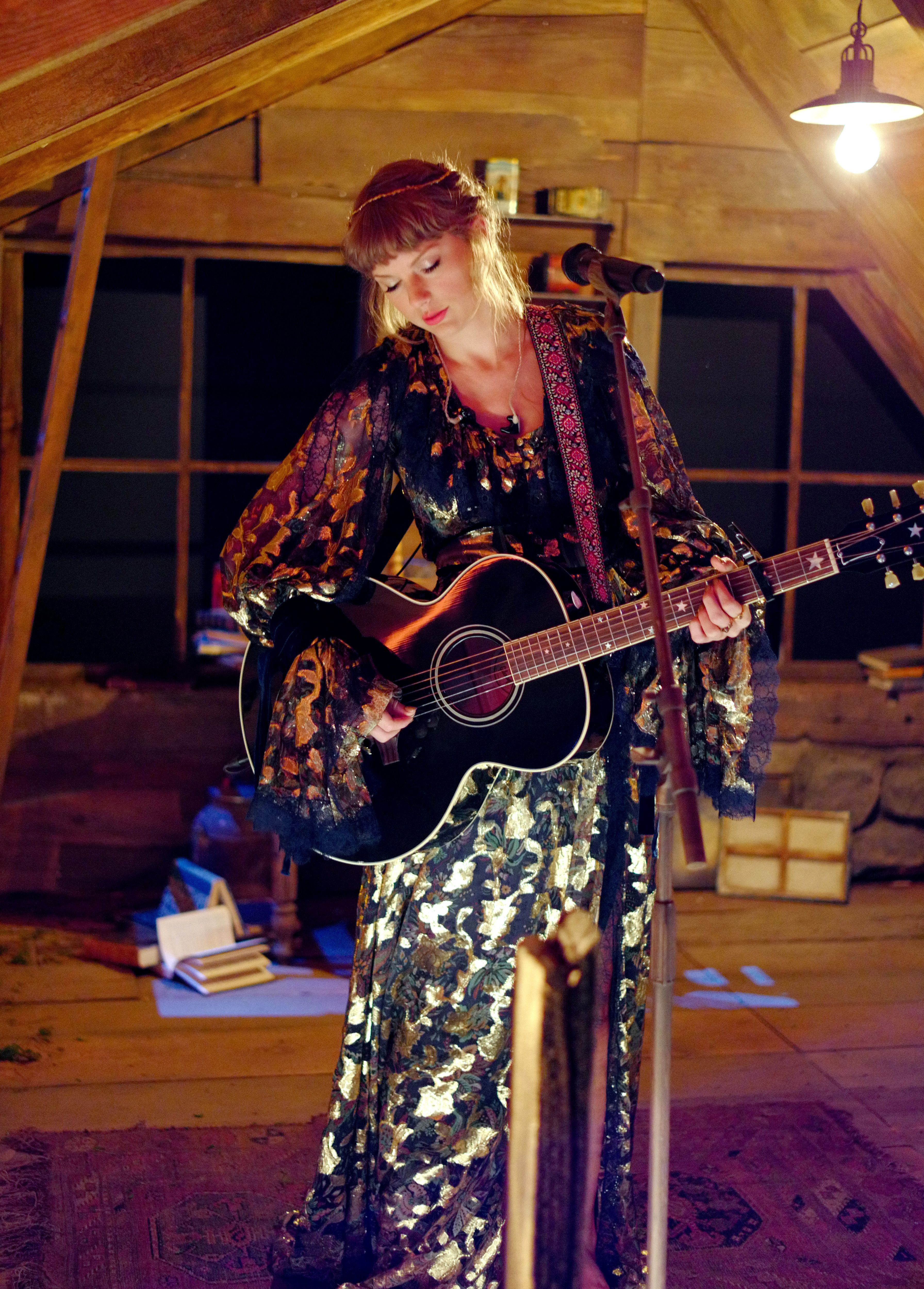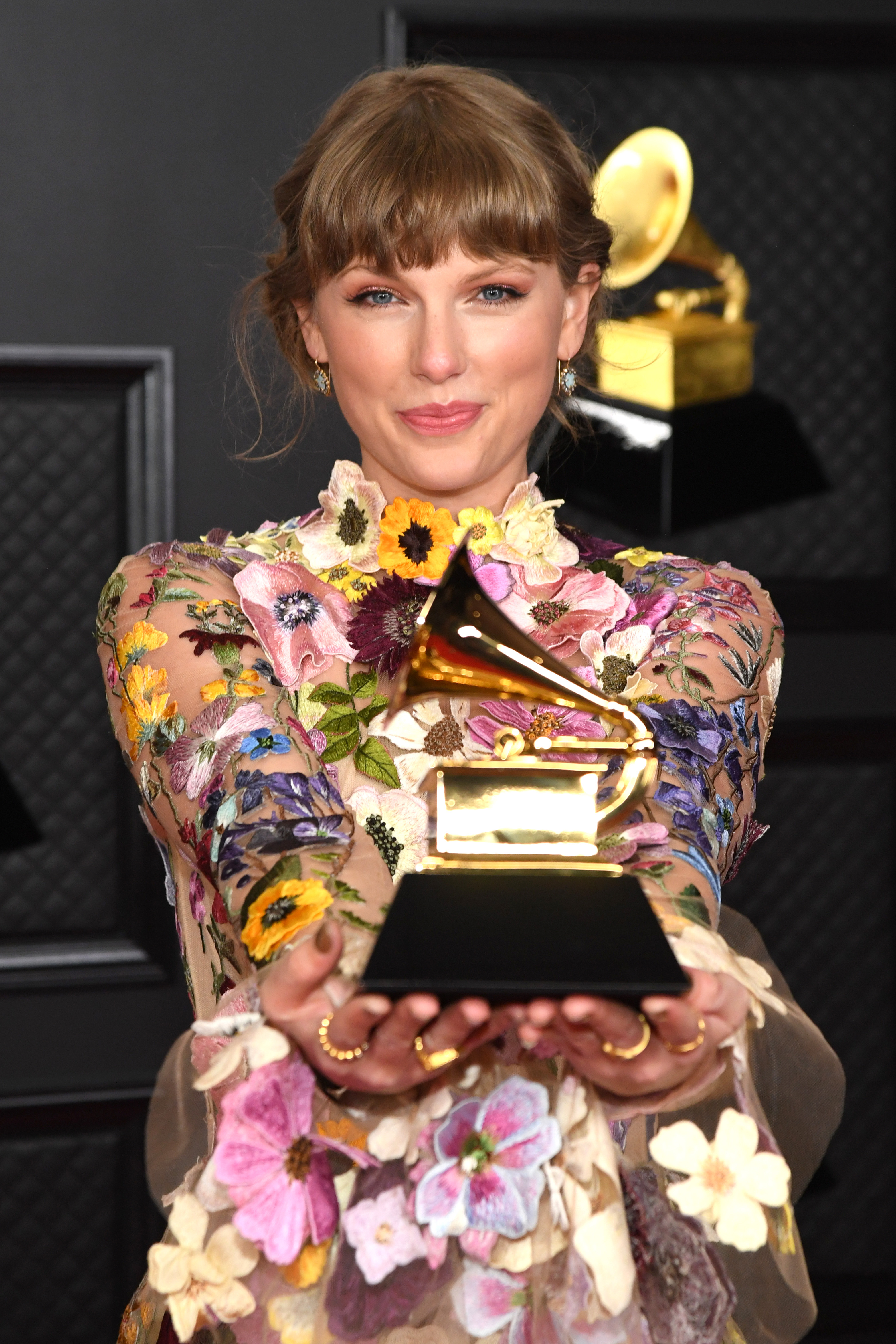

It seems that every week, we see Taylor Swift in our social media newsfeeds—and for good reason. Some might argue that last year was Swift’s power year—with the surprise release of Folklore hexing us out of a pandemic melancholy and dominating charts left and right. But Swift’s momentum in 2021—with the release of Evermore, Fearless (Taylor’s Version), Red (Taylor’s Version), Folklore winning the GRAMMY Award for Album of the Year and winning the 2021 BRIT Global Icon Award—dwarfs the gentle magic of 2020.
Now, at this point, we all know the name Scooter Braun for a multitude of reasons—i.e. when Swift called him an “incessant, manipulative bully” for denying her the right to her own artistic material when he acquired the Big Machine label in 2019. But like the Millennial #girlboss she is, Swift took matters into her own hands, re-recording and re-mastering all the work from her first six studio albums, re-writing history and gaining autonomy over her creative material.

This monumental feat is no doubt due in part to the amount of wealth, popularity and privilege Swift has, with a net worth of $400 million in 2021. But don’t let that disillusion you into thinking that this act was motivated by money, because symbolically, it means so much more than just cashing a check.

When it comes to the autonomy of women in the arts, let’s just say that there are a lot of case studies worth examining from the past couple of years. The movement was crystallized decades ago—by #FreeKesha in 2014, or even farther back in 2004 with the “Free Fiona” campaign organized to support Fiona Apple’s freedom in the recording of her third studio album Extraordinary Machine with Sony Music.
In recent years, the bulls-eye of this discussion has largely surrounded the #FreeBritney movement and now, with the genesis of the (Taylor’s Version) franchise, Taylor Swift.
Let’s be honest, none of us want to revisit past loves or tumultuous heartbreaks. It can be an embarrassing internal moment to reflect on how we may have acted in a hot and heavy, yet emotionally immature, relationship. The only thing that could make it only slightly worth this pain and distressing nostalgia is the promise of telling it on our own terms—and a little profit doesn’t hurt either.

This is the point in the year-in-review where we talk about a certain 10-minute song/ music video combination that dominated our minds (or mine, at least) for a good two weeks or so. I’m talking of course about the monumental “All Too Well (10 Minute Version) (Taylor’s Version) (From the Vault).”
Something about hearing the lyrics “You said ‘if we had been closer in age maybe it would have been fine'” followed up by “The idea you had of me, who was she?” nine years after the onset of the original “All Too Well” felt like something closer to a healed scar rather than a freshly stitched wound. It was cathartic, and watching Swift grow up out of teeny-bopper country singer in heartbreak and into someone who owns her power as a multi-faceted powerhouse of talent is inspiring, to say the least.
Now when we hear the lyrics “The idea you had of me, who was she?” it seems as if she’s asking the question into a mirror rather than metaphysically asking Jake Gyllenhaal. And of course how could we forgot the ultimate “gotcha” moment of epic proportions that was “I’ll get older but your lovers stay my age.”

With this, Swift not only gained autonomy over her music and artistic material, but also over her heartbreak and emotional freedom, getting the last word in some would say.
So yeah, I would give her back that scarf, Mr. Gyllenhaal.















